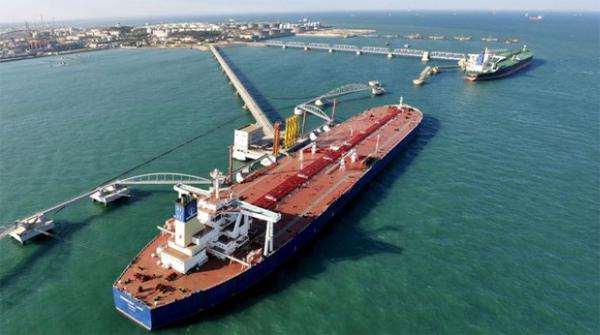
CHINA'S TAX EXPORTS

PLATTS wrote, after more than a decade, China has decided to restore tax rebates on exports of gasoline, gasoil and jet fuel, a sign that Beijing is more than comfortable with the domestic supply situation for oil products.
China's Ministry of Finance and the State Administration of Taxation announced late last week that the entire VAT of 17% would be refunded when those products are exported, effective November 1.
This implies that products processed from domestic crudes can join the export bandwagon, in addition to those produced from imported crudes.
Market participants said that while the re-introduction of the rebate, which was removed when China faced a domestic supply shortage a decade ago, would help encourage exports, Beijing could still keep an indirect control on it through the allocation of export quotas and regulate as and when needed.
"For refiners and exporters, the priority will still be on securing export quotas for gasoline, jet fuel, and diesel with third-party processing deals," Facts Global Energy said in a research note on the latest policy move. Chinese producers can export oil products in two ways -- under normal trade or under processing trade.
Under processing trade, export quotas are needed and exports are required to be processed from imported feedstocks.
This is the preferred route for domestic refineries as they are free of taxes.
Currently 36 refineries, comprising independent and state-owned ones, have been granted export quotas for processing trades.
Around 85-90% of China's gasoline and gasoil exports as well as 40% of jet fuel exports are under processing trades.
Under normal trade, there is no feedstock use restriction for oil product exports, but they are subject to taxes including VAT and consumption tariff.
The latest tax rebate is only applicable to product exports under normal trade.
With a rebate of 17%, exporters will move a step closer to making exports under normal trades competitive.
In addition, they will try to find ways to source the most competitive supplies from the market and will no longer be restricted to export products processed only from imported crudes, market participants said.
"With the latest move, China's oil product exports will become more competitive and will be more in line with the international market, helping to earn better trading profits," a trader with a state-owned company said.
DOMESTIC SUPPLIES ENOUGH
Over the first nine months of 2016, China exported 26.78 million mt of gasoline, gasoil and jet fuel, surging 58.7% from 16.87 million mt in the same period of last year.
Most of the exports were products processed from imported crudes. For normal trades, 17% VAT is imposed on the product price over and above consumption tax.
Gasoline, gasoil and jet fuel are subject to consumption taxes of Yuan 2,110/mt, Yuan 1,411/mt and Yuan 1,496/mt, respectively.
The government's move to give a VAT rebate is seen by traders and analysts as a step towards the government's long-term plan to completely abolish consumption taxes on exports of the three oil products as the domestic market faces an oversupply situation.
"The aim to restrict exports so far has been to keep the oil product barrels in the country to ensure domestic supplies. But because of the current oversupply situation, it is not that necessary to keep the barrels," a market observer said.
The VAT rebate was suspended in September 2005 as the government stepped up efforts to limit oil product exports, although it was once reinstated briefly over January-March 2006.
"We expect to take less than six months to resume exports under normal trades as no one has done any deals in the last 10 years due to the tax issue," said a Singapore-based trader from a state-owned company, referring to exports without any feedstock use restrictions.
Traders said the first batch of quota holders for normal trades are widely expected to be those from the trading arms of the five state-owned oil companies -- Sinopec, CNPC, CNOOC, Sinochem and Zhuhai Zhenrong.
"I don't think it will be a problem for the government to issue normal export quotas to qualified applicants. There is no such quota awarded in the last 10 years and that is only because no company has applied for it due to the tax issue," said another trader.
-----
Earlier:
CHINA'S OIL PRODUCTION DOWN BY 10%







